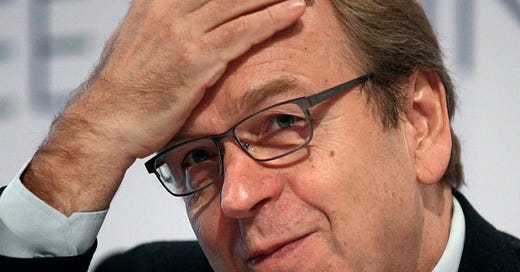Crisis is the lifeblood of the European Union.
A world war birthed the original Communities and oil shocks accelerated their development but it was the collapse of communism, currency and debt crises, a pandemic and a border war that turbocharged reforms and built robust institutions.
Histories of these crises focus on political figureheads but it’s not presidents and prime ministers who do the hard and detailed negotiations. These are done by officials behind closed doors in gruelling bilateral and multilateral meetings in Brussels, Frankfurt, Washington, and often more surprising locations.
By design and improvisation, these officials built the single market and banking union, expanded the EU from nine to 28 member states, shrank it by one, prevented the collapse of the euro area, oversaw defaults and bailouts, and constructed financial firewalls. And, all the time, managing politics and egos.
This is the first in a series of interviews with these officials - people who were In The Room as Europe evolved from a club of nations into a union.
The series opens with a statesman with unrivalled experience. Erkki Liikanen was a politician in an outsider state bordering Russia in the 1970s, a finance minister in the 1980s, the ambassador who negotiated Finland’s accession to the union, a two-term European commissioner, and a two-term member of the European Central Bank’s governing council. We met in Helsinki soon after Finland applied to join NATO in response to Russia’s full-scale invasion of Ukraine.
"Putin didn't know that he actually united Europe,” he said. “Interestingly, not only policymakers but also people ... I was in London and they asked me: why did [Finland's] position change? And there were three Ps. Putin: he united us. People: they saw big change. Politics: political parties really followed both the world events and domestic opinion and were able to make big changes”.
Click on your chosen app link or use the RSS feed to listen and subscribe (free):





